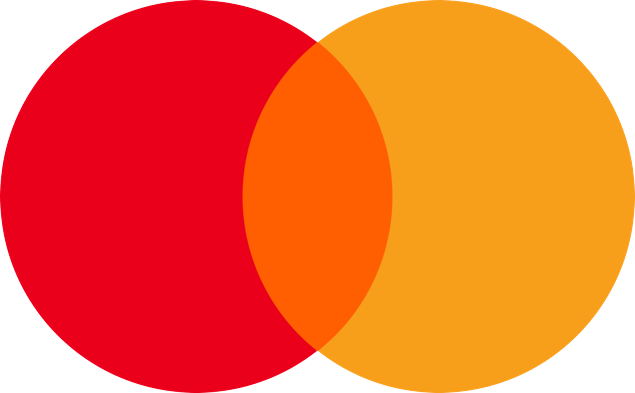SaveBroker offers you a set of risk management tools that help you protect your trade, your account and funds. Negative balance protection ensures that your account will never go below zero, a protection SaveBroker has offered as a standard feature at no additional cost since 2021.

Negative balance protection means that even if markets move rapidly against your trades, your account will not be negative. This is especially important to new traders that may not be familiar with how rapidly markets move during announcements, market openings or general market volatility.
This, in combination with the other risk management tools SaveBroker offers including dealCancellation* and Freeze Rate give traders the ability to better control their risk when on the market.
Negative balance protection ensures that traders with losing positions don’t end up with a negative balance in their forex trading account. If you find yourself in a bad trade and are losing money fast, a margin call can save you from going into debt. Simply put, a margin call automatically closes your rapidly dropping open positions.
In today’s complex environment, negative balance protection can help traders manage volatility and take advantage of high-volume trading sessions without having to worry about going into debt. After all, most traders would agree that low volatility isn’t ideal when trading retail forex because it limits opportunities. However, too much of anything can be equally as bad. In the case of forex, too much volatility can wipe out your trading account in a matter of moments. This is why negative balance protection is so important.
2015 was an especially volatile year for the global financial markets, including retail forex trading. The Swiss National Bank’s decision to remove the three-year old peg of the EURUSD exchange rate in January triggered unprecedented volatility in the markets, causing many brokers to go out of business, while others scrambled for bailouts. Meanwhile, traders were left in the dark as to whether their brokers would demand payment for negative balances.
The SNB blowout in January 2015 highlighted the importance of guaranteed balance protection. The last thing a trader needs is to deal with losses that exceed their investment capital, especially when you consider the composition of the retail forex market. A great benefit of CFD trading is it attracts people from all walks of life, including “social” traders and other laypersons that trade in their spare time.
At SaveBroker we understand that the onus of researching and picking trades is on the trader, but the onus of facilitating trades in a variety of market conditions is on us, the broker. That’s why we offer guaranteed negative balance protection.
As we mentioned not every retail forex broker offers negative balance protection. Many brokers claim to offer negative balance protection simply to reassure newcomers that they are a trustworthy service provider. Others do it to lure newcomers because “guaranteed margin call” is a new industry buzzword, much like “ECN” and “STP” brokers.
Traders can easily tell the difference between brokers that just say they offer negative balance protection and those that actually guarantee it. For starters, how long has the broker been in operation? This will tell you a great deal about whether the broker is sufficiently well capitalized and is in good standing. If you’d like to weed out 90% of brokers, simply search for retail forex brokers that have been around for more than a decade. These guys probably offer guaranteed margin calls to save you from going into debt.
Imagine placing your trade, but it executes at a different price. Now forget it, because on SaveBroker platform the price requested, is the one executed for your trade. Beyond the exclusive and innovative trading, risk management and analysis tools – the SaveBroker platform features zero slippage. Guaranteeing that the price you see is the price your trade is executed at.
The question you are probably asking is, how does slippage happen. When markets are very active an instrument’s price can fluctuate significantly in the matter of just a few seconds. Those seconds could be a result of software or server lag – no matter what the reasons behind slippage it can result in unintended losses or gains.
This is why easyMarkets native platform features zero slippage, ensuring price transparency and that a clients’ trade will be executed at the price they intended to trade.
Enjoy Zero % Transaction Fees on all your Deposits and Withdrawals with SaveBroker – The Broker that saves your money.
Zero % Transaction Fees are applicable on the following modes :

Fixed spreads help traders know their bottom line i.e. their spread cost, regardless of market conditions. No matter what the market’s liquidity or volatility is, SaveBroker spreads remain stable. Even during Bitcoin’s historic bull run, when it reached $20,000 – SaveBroker not only continued offering the cryptocurrency but kept its spreads unchanged. Applicable to accounts with a Deposit of $ 20,000 or more.
Although Fixed spreads do not change, they do differ from instrument to instrument. Variable spreads can reveal the liquidity of a market.
This is due to certain factors such as:
In forex trading, spreads are of two types: variable and fixed.
A variable or floating spread is a constantly changing value between the ask and bid prices. In other words, the spread you pay for purchasing a currency pair fluctuates because of things like supply, demand and total trading activity.
Brokers promising tight spreads typically offer variable spreads. Although it’s certainly possible that the actual spread you pay for matches the one advertised by the broker, this is not always the case. In general, spreads are usually tighter during active trading sessions where liquidity is optimal. A prime example of this is the London-New York overlap.
After all, variable spreads are characterized as a “completely market phenomenon.”
1. Investopedia. Definition of ‘Spread.’
2. Forex CFD Trading: Fixed Spreads or Variable Spreads. Contracts-for-difference.com
3. Capital Spreads. Fixed or variable FX spreads
4. Investopedia. Forex Scalping.
5. Fixed Spread in Forex Trading – Four Solid Reasons to Choose It. Traderji.com.
Unlike variable spreads, fixed spreads are set by the broker and don’t change regardless of market conditions or volatility. The spread you are offered is the spread you pay.
Although variable spreads marketed at 0.1 pip look more appealing, fixed spreads can potentially save you more money throughout the course of your career. Below are five advantages of fixed spreads in forex.






This Website is Owned by SaveBroker Ltd. The objects of the Company are all subject matters not forbidden by International Business Companies (Amendment and Consolidation).
Trading leveraged products such as Forex and CFDs may not be suitable for all investors as they carry a high degree of risk to your capital. Please ensure that you fully understand the risks involved, taking into account your investments objectives and level of experience, before trading, and if necessary seek independent advice. Please read the full Risk Disclosure.
support@savebroker.com
Gaversesteenweg 55, 9800 Deinze, Belgium.